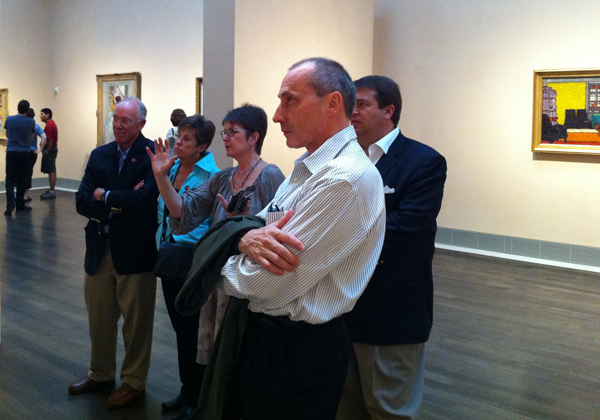Author Archives: Klaus Ottmann
Do museums think the public is stupid?
In the recent issue of The New Republic, the art critic Jed Perl accuses the current director of the Metropolitan Museum of Art, Thomas Campbell, of dumbing-down the museum by incorporating, among other things, the widespread use of iPads in the museum’s galleries (“Campbell Meets Warhol: Does the Met’s director think the public is stupid?”).
Perl asserts that Campbell is surrendering his previous, high curatorial standards to the desire to “demystify the museum through digital means” at the expense of experience and scholarship, effectively turning the museum into a “well-oiled corporate machine […] that downgrade[s] the value of curators, not to mention the value of art.”
It is true that since the 1980s the focus of museums increasingly has been on education and interpretation, which among other things, has created a boom for audio guides and now mobile apps. But the issue of experience vs. interpretation is at least as old a question as modern art itself, going as far back as the nineteenth-century French intellectual dispute on the museum between the poet Paul Valéry and the novelist Marcel Proust.
Continue reading
Art and Responsibility
Great works of art not only help us transcend our lives but create an ethical ground for our being. According to the French phenomenologist Emmanuel Levinas, transcendence is not a modality of essence – not a question of being or not-being – but rather an ethical imperative; it is not a “safe room” of solipsistic inwardness but a site of responsibility for others. In the transcendental beyond, we are ordered toward the responsibility for the other.
Here are my two favorite global aid agencies: MercyCorps and Doctors Without Borders.

